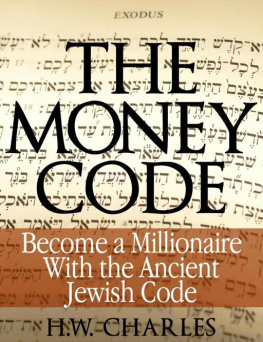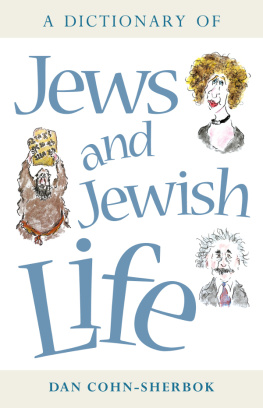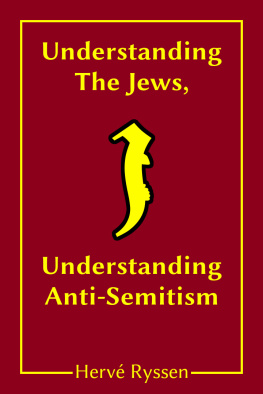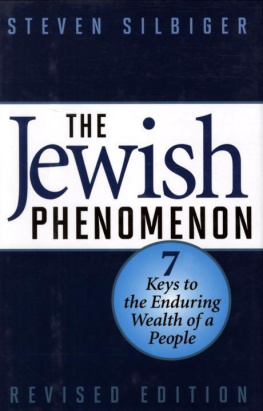The Money Code:
Become a Millionaire With the Ancient Jewish Code
H. W. CHARLES
Edited by Monica Sannicolas
ISBN: 978-0-9916903-1-2
Copyright 2012
All rights reserved. No part of this document or the related files may be reproduced or transmitted in any form, including photocopy, recording, or any information storage and retrieval system now known or to be invented, without the prior written permission of the publisher or author.
LEGAL DISCLAIMER
Although the author and publisher have made every reasonable attempt to achieve complete accuracy of the content in this book, they assume no responsibility for errors or omissions. Neither the author nor the publisher shall be held liable or responsible to any person or entity with respect to any loss or incidental or consequential damages caused, directly or indirectly, by the information contained herein.
CONTENTS
PREFACE
It is as if the ordinary language we use every day has a hidden set of signals; a kind of secret code.
- William Edgar Stafford (19141993), American Poet
A code is a systematically arranged and comprehensive collection of laws, regulations, and rules of procedure. A code is also the conversion of a message into a hidden system of communication for the purposes of secrecy.
This book will reveal the money code that the Jews have known for centuries. Where is this code found? It is found in the books containing historys greatest wisdom of all time, specifically the Jewish religious texts.
Non-religious people must not put aside religious books simply because they do not believe in religion. Religion has preserved history's greatest wisdom teachings, said religious studies scholar Huston Cummings Smith. Catherine Ponder, author and minister, has referred to the Bible as "the greatest textbook on prosperity ever written."
Although some popular religious texts such as the New Testament, Quran, Bhagavad Gita, Tao Te Ching, or Tibetan Book of the Dead contain interesting insights and stories, it is the Jewish religious texts such as the Old Testament (Hebrew Scriptures) that contain valuable information on acquiring wealth. Knowing this, you may be interested in reading the Jewish religious texts; however, there is an overwhelming amount of information in these texts. The Tanakh contains 39 books and over 1,000 printed pages. There are over 12,000 printed pages in the Talmud . This book makes it easy for you to gain all the most relevant information that the Jews have used to succeed for centuries.
According to Kabbalistic teachers, the simple meaning of the Old Testament is not its true meaning. Rabbi and Kabbalist Menasseh ben Israel said, There is no single letter in the Scriptures whereon a thousand secrets do not hang. The Money Code is found in the Old Testament and is decoded by the Talmud and other Jewish religious texts. The Talmud explains the secret meanings behind the words of the Hebrew Scripturesfrom the more common method of gematria, to the more esoteric method of exchanging certain letters for others, like the method of atbash, where the first letter of the Hebrew alphabet is exchanged for the final letter, and so forth.
In this book, quotes are taken from the Tanakh and are decoded by the Talmud , an authoritative Jewish text. In this book, the definition of decoding a message is to analyze, interpret, and extract the underlying meaning and learn how to apply the message in day-to-day life.
The Bible contains two parts: Old Testament (Hebrew Scriptures) and New Testament (Greek Scriptures). Jews refer to the Old Testament as the Tanakh . Jews refer to the first five books of the Old Testament as the Torah (CJB, Joshua 1:8). The Torah is also referred to as the Book of the Law, Five Books of Moses, Law of Moses, Mosaic Law, or Pentateuch. For simplicitys sake, we will only use the Jewish terms Torah and Tanakh in this book. Most of the quotations from the Tanakh in this book come from the Complete Jewish Bible (CJB) and the Jewish Publication Society Bible (JPS). In some cases, different translations of the Tanakh will be used to gain a clearer understanding.In Jewish Bibles the term Adonai is another name for God.
For non-religious readers of this book, this book takes into account that the term God can also refer to an invisible universal power or spiritual force that governs universal law and order such as the law of gravity.
You do not need to become a Jew or covert to their religion, Judaism, to become wealthy. Your financial success does not depend on your education, sex, race, or past experiences but rather on the wisdom you learn. The Tanakh says, By your wisdom and discernment you have acquired wealth (CJB, Ezekiel 28:4).
Now before we begin, lets explain the religious beliefs of the Jews. Testament means "covenant" or "contract." A covenant is a written agreement between two or more parties to perform some guaranteed action. In the Torah it refers to an agreement between God and his people in which God makes certain promises and requires certain behavior from them in return. The Old Covenant contained in the Torah promised prosperity among other things as a reward for obedience. Observe the words of this covenant and obey them; so that you can make everything you do prosper (CJB, Deuteronomy 29:9).
The Old Covenant was made with the Jewish people in the past: All of you are standing today in the presence of the Lord your Godyour leaders and chief men, your elders and officials, and all the other men of Israel, together with your children and your wives, and the aliens living in your camps who chop your wood and carry your water. You are standing here in order to enter into a covenant with the Lord your God, a covenant the Lord is making with you this day and sealing with an oath, to confirm you this day as his people, that he may be your God as he promised you and as he swore to your fathers, Abraham, Isaac and Jacob (NIV, Deuteronomy 29:10-13).
The Old Covenant was also made with the Jewish people of the future: I am making this covenant both with you who stand here today in the presence of the Lord our God, and also with the future generations who are not standing here today (NLT, Deuteronomy 29:15).
Non-Jews are known as foreigners in the Tanakh and will greatly benefit from following the Old Covenant. The Tanakh says, "I will also bless the foreigners who commit themselves to the Lord" (NLT, Isaiah 56:6). Christians will benefit from following the Old Covenant. Jesus himself said, Don't ever think that I came to set aside Moses' Teachings or the Prophets (GWT, Matthew 5:17). Christ did not invalidate the Old Covenant, except for the requirements of animal sacrifices.
Those who dont obey the Old Covenant may even come under a curse of poverty. This is what the Lord, the God of Israel, says: Cursed is anyone who does not obey the terms of my covenant (NLT, Jeremiah 11:3). Remember the ancient covenant, and do everything it requiresbecause they refused to obey, I brought upon them all the curses described in this covenant (NLT, Jeremiah 11:6, 8). Jewish people view wealth as a blessing and look down on poverty because it cannot help anyone.
In this book, scriptures may be partially quoted or taken out of context. The practice of quoting out of context refers to removing a passage from the rest of the written text. Quoting out of context can sometimes lead to a change in the intended meaning of the quote. This can be a problem when quotes are taken out of certain religious books such as the New Testament, but it does not apply to the Torah. Regarding the Torah, every single statement from scripture can be viewed as a law, decree, rule, regulation, instruction, ordinance, or statute (Leviticus 26:46).
Keep in mind that this book will help you to accumulate massive wealth if you are willing to change your way of doing things. However, it will not help you if you are not willing to change. The Tanakh says, When people fall down, don't they get up again? When they discover they're on the wrong road, don't they turn back? Then why do these people stay on their self-destructive path? They cling tightly to their lies and will not turn around" (NLT, Jeremiah 8:4, 5). Some people will be stubborn and continue following their own ways of doing things even if it is not helping them accumulate wealth.
Next page












